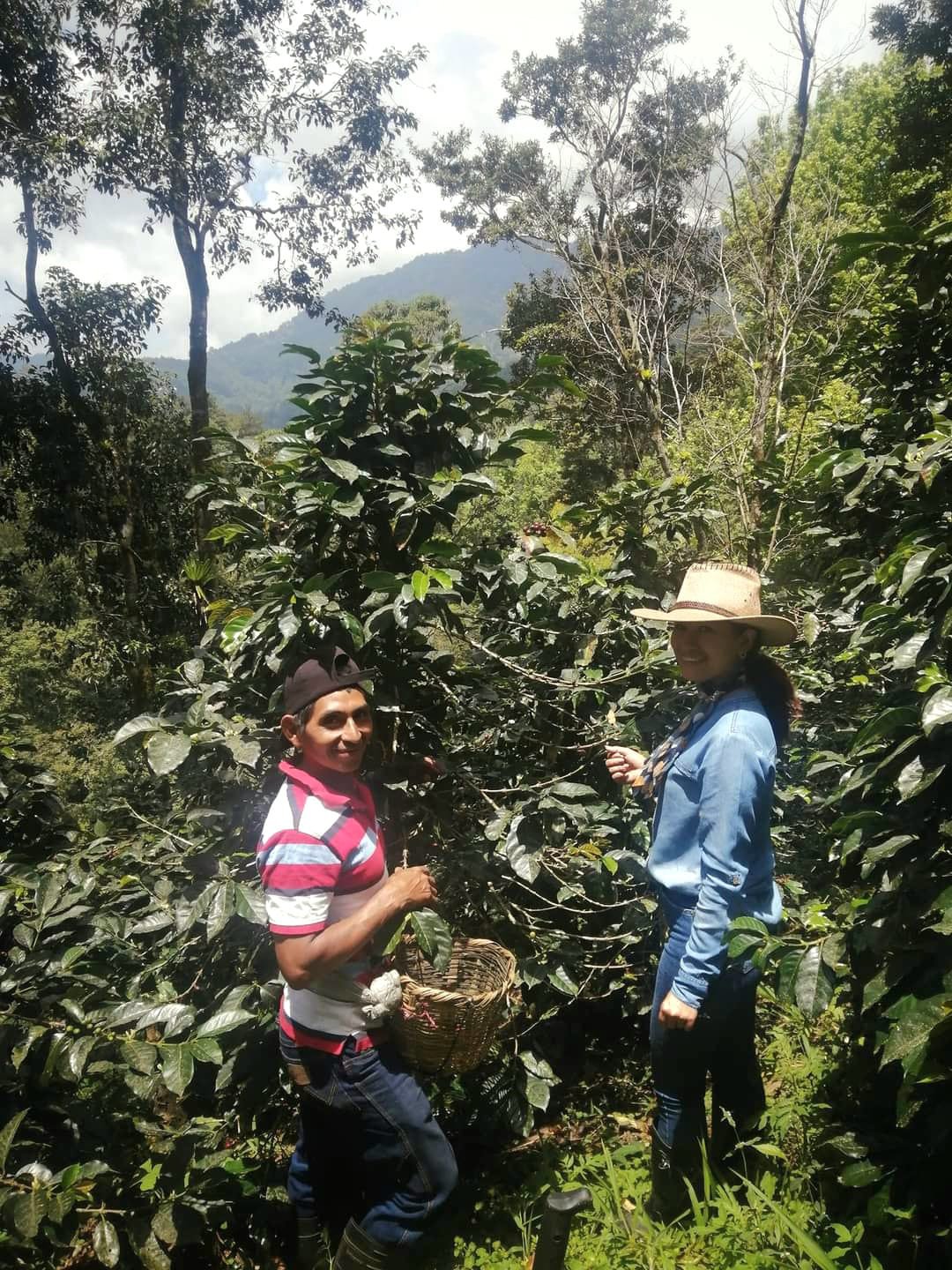las tres
hermanas
SINGLE FARM
〰️
SINGLE FARM 〰️
Producer Cynthia Morales
Farme Las Tres Hermanas
Region Mosonte, Dipilto
Altitude 1500 – 1600 masl
Process Lot 1: washed
Lot 2: carbonic maceration Natural
Species Arabica
Variety Bourbon Tékésic
Harvest January–March
LAs tres hermanas
Las Tres Hermanas is a small-scale farm located in the municipality of Mosonte in Dipilto. It is positioned high in the mountain range bordering Nicaragua and Honduras. The highest parcels reach up to 1,600 m, conferring to the coffees a complex acidity and fruity cup profiles.
Cynthia Morales is part of a sibling trio—her three sisters gave their name to the farm. Cynthia, passionate about agriculture, inherited the farm from her father. She works to ensure generational continuity of the farm and the region. The young farmer has undertaken numerous quality and processing training courses and is deeply involved in the coffee-growing community of Dipilto. Concurrent with her activity on the farm, she teaches coffee-cultivation courses in a national coffee school financed by the government.
The Bourbon Tékésic is a genetic line of the Bourbon variety developed by the Coffee Research Institute of El Salvador in the 1950s and 1960s through tree-by-tree selection. This variety is not very resistant but was developed by ‘mass selection’ with the aim of isolating the plants that perform best in taste.
Las Tres Hermanas demonstrates the determination of certain women within the value chain. We are very proud to work with this coffee!
Le Process
LOT 1
Cynthia carries out the processing of her coffee on the farm.
The washed coffee is then transported to the Bridazul drying and sorting station.
This lot dries on African beds.
LOT 2
Borrowed from the world of winemaking, carbonic maceration allows coffee to develop more fruity notes, while adding body, complexity, and richness to the cup.
First, the coffee cherries are placed in sealed tanks inside a temperature-controlled room — the aim being to keep conditions cool enough to prevent the growth of unwanted bacteria that could lead to alcohol formation.
During fermentation, CO₂ is naturally produced inside the tank, which expels the air through a special valve. The cherries then ferment in an anaerobic environment and in the presence of CO₂. This promotes fermentation from the inside out — in contrast to traditional fermentations that occur from the outside in, such as when yeasts or external ingredients (like fruits) are added.
This stage extends over several days, until the cherries reach a rich, gelatinous texture.
Once removed from the tanks, the cherries are laid out on African drying beds still inside of the cold room in thick layers. After 3 to 5 days of pre-drying, they finish drying on raised beds in the sun.
Le Projet bridazul
Bridazul is a holistic project launched in 2019 by Claudia Lovo. Its mission is to build lasting bridges between producers and consumers, combining quality, economic and environmental sustainability, and social impact. The project supports around fifty small- and medium-scale producers from the Nueva Segovia region.
Claudia, a Nicaraguan producer and owner of Finca El Árbol, was, together with her partner Sasa Sestic, among the pioneers of carbonic maceration coffee lots in the early 2010s. Their success quickly resonated throughout neighbouring villages, prompting local farmers to seek their guidance. Claudia and Sasa began sharing both their infrastructure and expertise, helping others to produce carbonic maceration coffees and to access broader markets. Their guiding principles are transparency, knowledge-sharing, and mutual support.
In 2019, Claudia succeeded in building a fully equipped processing station, a physical space where producers come together to process their coffees — this place is called Bridazul. More than just a shared beneficio (wet mill), Bridazul is a comprehensive support initiative. It provides agronomic monitoring for soil health, offers training programmes for producers, gives guidance on green coffee sales, and ensures fair remuneration — higher than market prices — that covers production costs and guarantees a sustainable profit margin for each farmer.
LOT 1: Washed
Aroma: chocolate, honey, orange.
Flavor: floral, milk chocolate, stone-fruit (peach, apricot), red fruit. Ethiopian profile.
CUP PROFILE
LOT 1: MCN
Aroma: floral, chocolate, raspberry, pistachio.
Flavor: floral, jasmine and violet, tea, red fruit, milk chocolate, red apple.






